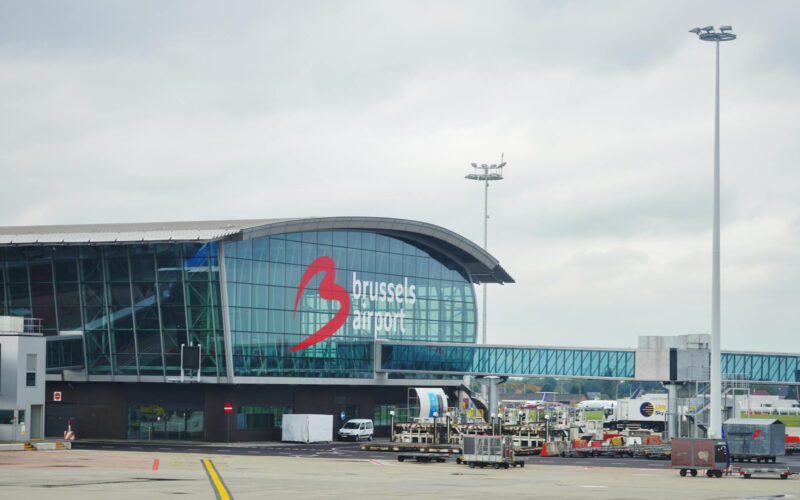Brussels Airport (BRU) has welcomed the first test flights carrying the coronavirus vaccines.
On December 1, 2020, Brucargo confirmed that the first flights with small doses of coronavirus vaccine have passed through Brussels Airport. The test flights are aimed at getting the logistics chain prepared once the vaccine is approved.
“The whole logistics chain is preparing, worldwide,” said Nathan De Valck, head of cargo at the BRU airport.
On December 1, 2020, the cargo company hosted a press delegation and did a demonstration about the handling of the COVID-19 vaccine at the facilities of DHL Express, reports the newspaper Le Soir.
“It was a pleasure to inform the national and international press about our capabilities at Brussels Airport to ensure a safe and efficient transportation of Covid-19 vaccines. The BRUcure task force is instrumental to the success of this logistical challenge,” said David Bellon, the Chairman at Air Cargo Belgium. “This will be the biggest product launch of all time. It requires a lot of preparation, so that transport is not slowed down anywhere.”
It has not been revealed what quantities will be transported through Brussels Airport, as it would depend on the signed contracts with pharmaceutical companies. The airport claims to be prepared to handle large quantities of the vaccine.
“Brussels Airport will be a real hub for the import and export of vaccines. It will be one of those places that will ensure that millions of vaccines are exported, and some of them also imported,” said Belgian Prime Minister Alexander De Croo during a visit to Brussels Airport in November 2020.
BRU Airport has 30,000m² of temperature-controlled areas. The airport announced it was mapping out different logistics chains as each vaccine demands a different way of transporting and storage. For example, Pfizer’s vaccine requires extremely cold temperatures and transportation using dry ice. Brucargo has gained experience in carrying vaccines on dry ice during the Ebola outbreak in West Africa in 2014-2016.
In November 2020, IATA issued guidance to ensure that the air cargo industry was ready for the large-scale delivery of COVID-19 vaccines. It encouraged the air carriers to prepare the temperature-controlled facilities and equipment as well as training the staff to handle temperature-sensitive vaccines.
“Delivering billions of doses of a vaccine that must be transported and stored in a deep-frozen state to the entire world efficiently will involve hugely complex logistical challenges across the supply chain,” said IATA’s Director General and CEO, Alexandre de Juniac.

